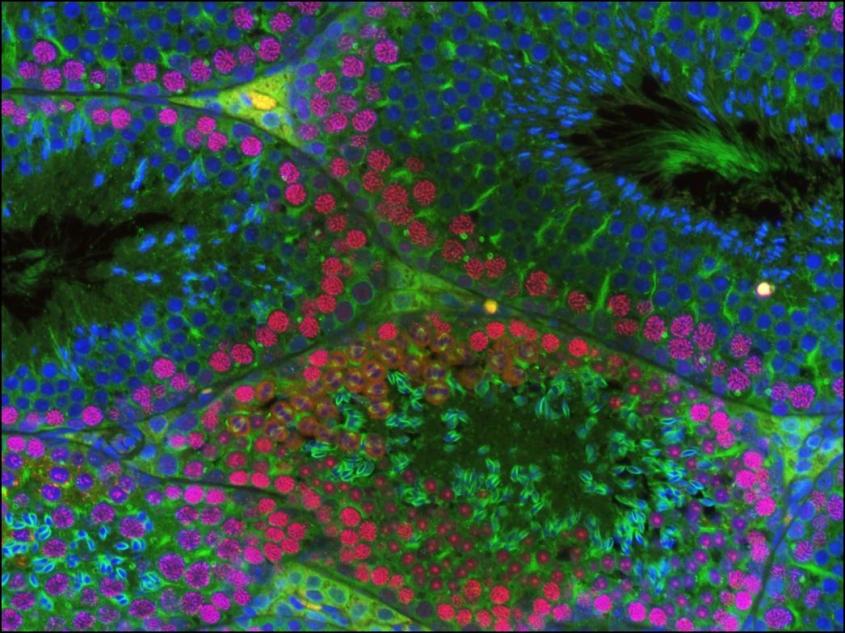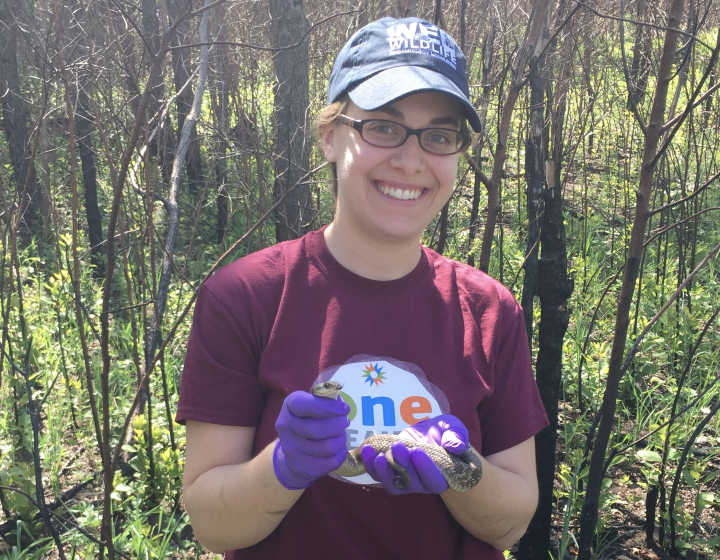New multidisciplinary symposium tackles reproductive health
On October 26, leading scientists from across Cornell shared their research and insights at the first-ever “Symposium on Engineering for Reproductive Medicine” sponsored by the Meinig School of Biomedical Engineering, the Cornell Reproductive Sciences Center (CoRe) and the A.D. White Professor-at-Large Program.
The event showcased Cornell’s strength in reproductive medicine, state-of-the-art technology and interdisciplinary collaboration. The Cornell University College of Veterinary Medicine has for many years been the epicenter of research in women’s health on campus, and several CVM faculty members were speakers at this event.
The keynote speaker was A.D. White Professor-at-large and Stanford University bioengineering professor Steve Quake, one of the world's foremost innovators in the life sciences. Quake holds more than 80 patents and is the inventor of non-invasive blood tests to screen for fetal chromosomal abnormalities.
A key component of the symposium was bringing together researchers from diverse disciplines, said Dr. Praveen Sethupathy ’03, the chair of the Department of Biomedical Sciences at CVM.
“The Biomedical Sciences department in the CVM has a particular strength in connecting basic and translational science, and has been at the forefront of bridging the Ithaca campus with Weill Cornell,” he said.
Presenting at the event were Dr. Paula Cohen, director of CoRe, associate vice provost for life sciences, and professor in the Department of Biomedical Sciences; Dr. Mandi de Mestre, professor in the Department of Biomedical Sciences at the Baker Institute for Animal Health; Dr. Stephen Chasen, a professor of clinical obstetrics and gynecology at Weill Cornell Medicine; and Dr. Yi Athena Ren, assistant professor of animal science in the College of Agriculture and Life Sciences.
“Cornell has such a strong history – both on the Ithaca and medical school campuses – in reproductive biology; we’ve been involved in much of the fundamental understanding in the field,” said Cohen, one of the event’s organizers alongside Dr. Iwijn De Vlaminck, associate professor, and Dr. Marjolein Van Der Meulen, professor and chair, both from the Meinig School for Biomedical Engineering. “Collaborating with engineers to think about innovative ways to address the significant health issues that still surround reproduction is incredibly beneficial.”
“When you bring together researchers from various disciplines to think about these bigger problems, it’s exciting to see how they collaborate,” she said. “It’s really something Cornell does very well.”
Cohen presented about her research searching for male contraception, which is funded by the Gates Foundation. “The pill came out in 1960, and we still don’t have strong alternative,” she explained. “And yet the pill has serious side effects for many women, even sometimes leading to death. Finding a form of male contraception will provide expanded access to contraception and help equalize the playing field.”
De Mestre shared her research on the discovery of chromosomal abnormalities in horses that is the leading cause of equine miscarriages. These abnormalities are similar to Trisomy 21, which leads to down syndrome in humans. “This a major challenge in the horse industry, but better understanding these miscarriages will also help inform human health,” she said.
Chasen presented about the benefits and challenges of using blood tests to screen for fetal chromosomal abnormalities in the clinic, connecting the basic and developmental research to a real-world setting. And Ren discussed her work on the molecular and cellular processes underlying cycles in adult ovaries, and how disrupting these cycles contributes to infertility in women.
The symposium provided an opportunity to view reproductive biology from different perspectives, a useful way to spark even more innovation, de Mestre said. “At Cornell, we are incredibly fortunate to have leading researchers coming at these problems from very different perspectives,” she said. “Our day-to-day work is so detailed – in many cases, you’re literally focusing on a single mutation in DNA. It is incredibly useful to take a step back to reflect on some of the bigger questions, and to better understand how discoveries in animals can inform humans and humans can inform animals.”
Written by Sheri Hall





